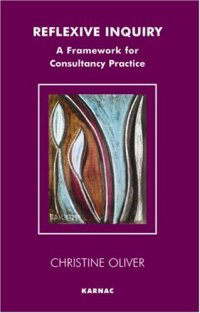
Ebook: Reflexive Inquiry: A Framework for Consultancy Practice
Author: Christine Oliver Sheila McNamee
- Genre: Psychology
- Tags: Psychology & Counseling, Adolescent Psychology, Applied Psychology, Child Psychology, Counseling, Creativity & Genius, Developmental Psychology, Experimental Psychology, Forensic Psychology, History, Medicine & Psychology, Mental Illness, Neuropsychology, Occupational & Organizational, Pathologies, Personality, Physiological Aspects, Psychiatry, Psychoanalysis, Psychopharmacology, Psychotherapy TA & NLP, Reference, Research, Sexuality, Social Psychology & Interactions, Testing & Measurement, Health Fitness & Dieting, Oc
- Series: Systemic Thinking and Practice Series
- Year: 2006
- Publisher: Karnac Books
- Language: English
- pdf
The impetus for this book came from an appreciation that reflexivity, for both consultant and client, is the core ingredient for facilitating the "changing organization." Central to this belief, Reflexive Inquiry (RI) draws on the spirit of five overlapping theoretical traditions--systemic, social constructionist, critical, appreciative, and complexity. These principles each offer a contribution to the management of reflexive consciousness and are used to shape consultancy practice. Tools expressing these approaches and embodying and facilitating reflexivity are honed and sharpened with illustrations from specific organizational cases. RI is offered as a counterpoint to Appreciative Inquiry (AI), a prevalent consultancy methodology discourse for working with organizational change.
In Part One of the book, the frame of RI is set out. In Part Two, its principles and tools are brought to life in organizational and community development contexts. Part Three draws out some implications of the principles, arguments, models, and tools presented for undertaking research, while Part Four concludes and takes a look at the potential for future development.
In Part One of the book, the frame of RI is set out. In Part Two, its principles and tools are brought to life in organizational and community development contexts. Part Three draws out some implications of the principles, arguments, models, and tools presented for undertaking research, while Part Four concludes and takes a look at the potential for future development.
Download the book Reflexive Inquiry: A Framework for Consultancy Practice for free or read online
Continue reading on any device:

Last viewed books
Related books
{related-news}
Comments (0)